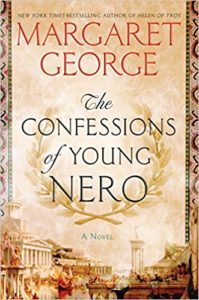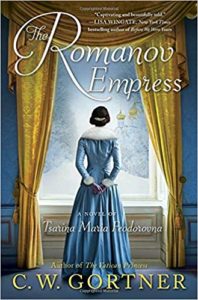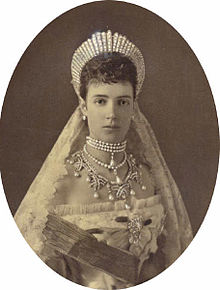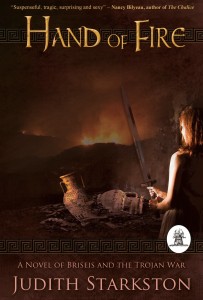
by fljustice | Aug 9, 2018 | Books, Fiction, Reviews
The Confessions of Young Nero
by Margaret George
The blurb:
 “While Nero idealizes the artistic and athletic principles of Greece, his very survival rests on his ability to navigate the sea of vipers that is Rome. The most lethal of all is his own mother, a cold-blooded woman whose singular goal is to control the empire…Nero’s determination to escape her thrall will shape him into the man he was fated to become—an Emperor who became legendary. With impeccable research and captivating prose, The Confessions of Young Nero is the story of a boy’s ruthless ascension to the throne. Detailing his journey from innocent youth to infamous ruler, it is an epic tale of the lengths to which man will go in the ultimate quest for power and survival.”
“While Nero idealizes the artistic and athletic principles of Greece, his very survival rests on his ability to navigate the sea of vipers that is Rome. The most lethal of all is his own mother, a cold-blooded woman whose singular goal is to control the empire…Nero’s determination to escape her thrall will shape him into the man he was fated to become—an Emperor who became legendary. With impeccable research and captivating prose, The Confessions of Young Nero is the story of a boy’s ruthless ascension to the throne. Detailing his journey from innocent youth to infamous ruler, it is an epic tale of the lengths to which man will go in the ultimate quest for power and survival.”
My Review
Because Nero is a minor character in one of my books (Sword of the Gladiatrix) and plays a more impactful role in the upcoming sequel (Song of the Gladiatrix), I was curious to see how George would handle this fascinating and controversial figure. The Confessions of Young Nero is set in the period considered by some historians to be Nero’s “sane” period (even though it included his infamous murder of his mother). His early life, especially under the influence of the philosopher Seneca and other older mentors, showed much promise. As he grew older and more independent, his choice of companions grew more reckless and his actions less excusable. (more…)

by fljustice | Jul 12, 2018 | Books, Fiction, Reviews
The Romanov Empress: A Novel of Tsarina Maria Feodorovna
by C.W. Gortner
 Blurb: “Narrated by the mother of Russia’s last tsar, this vivid, historically authentic novel brings to life the courageous story of Maria Feodorovna, one of Imperial Russia’s most compelling women, who witnessed the splendor and tragic downfall of the Romanovs as she fought to save her dynasty in its final years…From the opulent palaces of St. Petersburg to the World War I battlefields and the bloodied countryside occupied by the Bolsheviks, C. W. Gortner sweeps us into the anarchic fall of an empire and the complex, bold heart of the woman who tried to save it.
Blurb: “Narrated by the mother of Russia’s last tsar, this vivid, historically authentic novel brings to life the courageous story of Maria Feodorovna, one of Imperial Russia’s most compelling women, who witnessed the splendor and tragic downfall of the Romanovs as she fought to save her dynasty in its final years…From the opulent palaces of St. Petersburg to the World War I battlefields and the bloodied countryside occupied by the Bolsheviks, C. W. Gortner sweeps us into the anarchic fall of an empire and the complex, bold heart of the woman who tried to save it.
My Review:

Maria Feodorovna
C. W. Gortner has hit another one out of the park with his newest historical novel The Romanov Empress: A Novel of Tsarina Maria Feodorovna. The book ranges over half a century from the eve of the protagonist’s sister’s wedding to the heir to the British throne (1863) to her dramatic escape from civil war-torn Russia (1919) aboard a British battleship. Gortner takes us on a heart-rending journey through the life of the woman born Princess Marie Sophie Frederikke Dagmar (“Minnie”) of Denmark. She took the name Maria Feodorovna when she converted to the Russian Orthodox Church, married the heir to the Russian throne Alexander II and became the mother of the last Tsar of Russia Nicholas II. Minnie is an appealing character and much less known than her daughter-in-law Empress Alexandra. My only acquaintance with her was as the white-haired aristocratic grandmother in the animated Disney film Anastasia. (more…)

by fljustice | Jun 25, 2018 | Books, Fiction, Reviews
Burr
by Gore Vidal
 Vidal is a master of his craft. This novel starts from the point of view of Charles Schuyler, a young law clerk working in the law office of an aged Aaron Burr. His employer inexplicably invites him on a mysterious carriage ride which ends in Burr’s wedding to a notorious rich widow. Schuyler, who prefers journalism to the law, writes an article about the wedding for a local newspaper–which gets rejected. But the editor, who is deep into New York and national politics, has an offer the penniless young man can’t refuse: a lucrative contract to write an anonymous pamphlet accusing Martin Van Buren (current vice-president and future presidential candidate) of being Aaron Burr’s illegitimate son which could hand the presidency to the likely contender Henry Clay. Schuyler just has to come up with some “proof” which, in those times before DNA testing, was pretty thin. This sets up the story in which young Schuyler struggles with his conscience over hurting a man he admires and helping a man, whose politics he abhors, win an election. (more…)
Vidal is a master of his craft. This novel starts from the point of view of Charles Schuyler, a young law clerk working in the law office of an aged Aaron Burr. His employer inexplicably invites him on a mysterious carriage ride which ends in Burr’s wedding to a notorious rich widow. Schuyler, who prefers journalism to the law, writes an article about the wedding for a local newspaper–which gets rejected. But the editor, who is deep into New York and national politics, has an offer the penniless young man can’t refuse: a lucrative contract to write an anonymous pamphlet accusing Martin Van Buren (current vice-president and future presidential candidate) of being Aaron Burr’s illegitimate son which could hand the presidency to the likely contender Henry Clay. Schuyler just has to come up with some “proof” which, in those times before DNA testing, was pretty thin. This sets up the story in which young Schuyler struggles with his conscience over hurting a man he admires and helping a man, whose politics he abhors, win an election. (more…)

by fljustice | Sep 19, 2014 | Books, Fiction, Free stuff, Reviews, Wonderful Women
Book Review and Giveaway:
“Hand of Fire” by Judith Starkston
I get pitched a lot of books. I usually accept about one a month. I like most of them and write a paragraph or two on GoodReads.com, LibraryThing.com or Amazon.com. A very few get the full blog treatment. Hand of Fire by Judith Starkston is one of those I want to enthusiastically share with my fellow readers. Her novel has all the elements I look for in historical fiction: compelling characters, engaging plot, and fascinating setting.
About the book:
 The Trojan War threatens Troy’s allies and the Greek supply raids spread. A young healing priestess, designated as future queen, must defend her city against both divine anger and invading Greeks. She finds strength in visions of a handsome warrior god; will that be enough when the half-immortal Achilles attacks? Hand of Fire, a tale of resilience and hope, blends history and legend in the untold story of Achilles’s famous captive, Briseis.
The Trojan War threatens Troy’s allies and the Greek supply raids spread. A young healing priestess, designated as future queen, must defend her city against both divine anger and invading Greeks. She finds strength in visions of a handsome warrior god; will that be enough when the half-immortal Achilles attacks? Hand of Fire, a tale of resilience and hope, blends history and legend in the untold story of Achilles’s famous captive, Briseis.
My review:
I have a weakness for stories that shine a light on little known women or give silenced women a voice in the way Anita Diamant spoke for the biblical Dina (Joseph’s only sister) in her wildly popular The Red Tent. Starkston takes a similar approach through the story of Briseis. In the Iliad Briseis has only a handful of lines, yet she is a pivotal character in the narrative arc of the classic poem, sparking a rift between Achilles and Agamemnon that almost brings the Greek war against Troy to ruin. In the poem she expresses her love for Achilles in spite of the fact that he killed her brothers and husband, sacked her city, and reduced her status from princess to slave. A tall order to build a believable scenario where that could happen! Starkston does a beautiful job taking the slender clues about Briseis’ life and times and building believable characters. Briseis matures from an uncertain girl to a woman capable of determining her own destiny in this engaging story. (more…)

by fljustice | Mar 26, 2013 | Essays/Research, History, Wonderful Women, Writing
Where Are All the Strong Women?
 Readers of this blog know I like to highlight fiction and non-fiction that present capable women with strong personalities. I read a post in a forum recently that intrigued me. The person was looking for historical fiction recommendations, but “none of those anachronistic modern women dressed up in historical costumes crap.” I don’t think s/he was disparaging time travel fiction and, yes, I’ve read a few stories where the women seem to have more modern sensibilities than might be warranted. But not all strong females in historical fiction are anachronistic. I’ve read other blog posts by historical fiction writers also deploring recent criticism about strong women described by readers as “too modern” in spite of ample historical evidence that women did and thought as the writers wrote them. Where does the dissonance come from? Why would a reader think a woman couldn’t be a doctor in Late Antiquity, captain a whaling ship, or teach men to fly planes during WWII — all documented events?
Readers of this blog know I like to highlight fiction and non-fiction that present capable women with strong personalities. I read a post in a forum recently that intrigued me. The person was looking for historical fiction recommendations, but “none of those anachronistic modern women dressed up in historical costumes crap.” I don’t think s/he was disparaging time travel fiction and, yes, I’ve read a few stories where the women seem to have more modern sensibilities than might be warranted. But not all strong females in historical fiction are anachronistic. I’ve read other blog posts by historical fiction writers also deploring recent criticism about strong women described by readers as “too modern” in spite of ample historical evidence that women did and thought as the writers wrote them. Where does the dissonance come from? Why would a reader think a woman couldn’t be a doctor in Late Antiquity, captain a whaling ship, or teach men to fly planes during WWII — all documented events?
I blame school history books. The protagonist in my novel, Selene of Alexandria is a young woman who wants to become a physician in fifth century Alexandria — not a “healer” or midwife — a trained and apprenticed physician. There is ample written and archaeological evidence of women physicians through the ages, including this period. But if you don’t look outside the traditional history texts, you wouldn’t know that. (more…)

“While Nero idealizes the artistic and athletic principles of Greece, his very survival rests on his ability to navigate the sea of vipers that is Rome. The most lethal of all is his own mother, a cold-blooded woman whose singular goal is to control the empire…Nero’s determination to escape her thrall will shape him into the man he was fated to become—an Emperor who became legendary. With impeccable research and captivating prose, The Confessions of Young Nero is the story of a boy’s ruthless ascension to the throne. Detailing his journey from innocent youth to infamous ruler, it is an epic tale of the lengths to which man will go in the ultimate quest for power and survival.”





